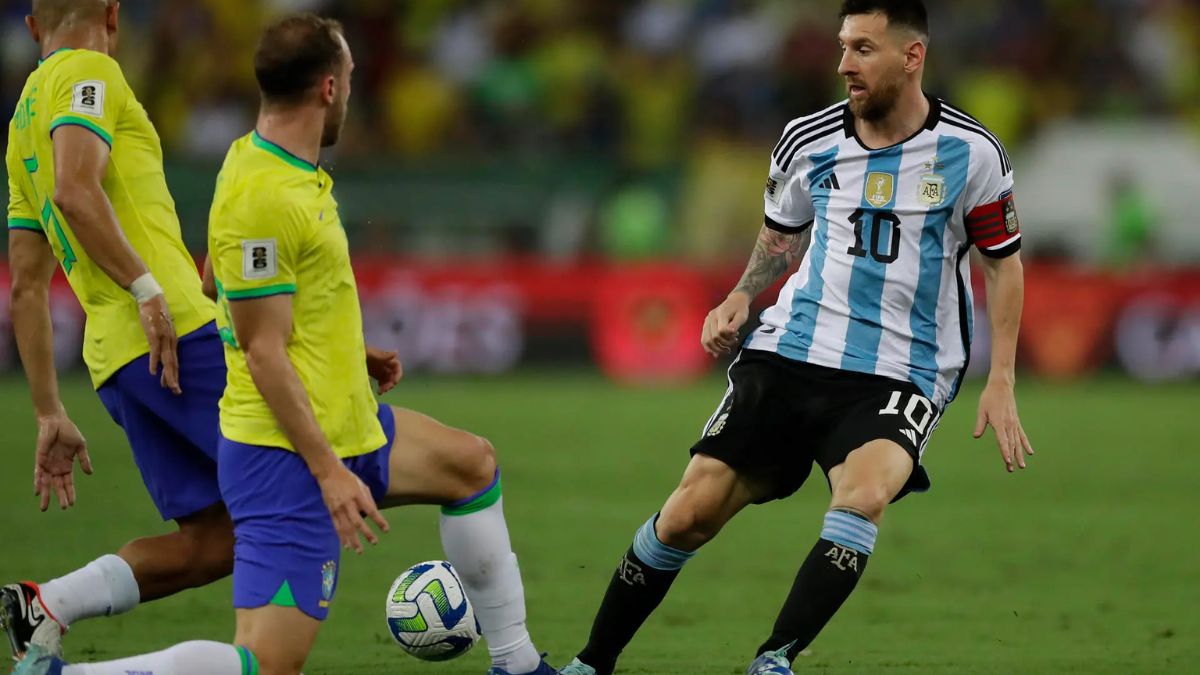It might sound utterly absurd, the sort of thing one shares for a chuckle over a cup of tea, but San Marino—yes, San Marino—has won more matches in November than Manchester City. Man City, despite being the Premier League champions, have managed five losses and a solitary draw in their last six outings. It’s been 34 long, arduous days since City last tasted victory.
Now, if Liverpool were to defeat Manchester City at Anfield on Sunday (16:30 GMT)—a venue often described as a fortress—City could find themselves in an unenviable position: 11 points adrift of the Premier League leaders after just 13 games.
If Liverpool Wins: A Gap of Historic Proportions
Over the 32 seasons of the Premier League, only three teams have clawed their way back from a deficit of 11 or more points to claim the title.
Moreover, Manchester City, for all their recent gains, have never managed to win the title after trailing by more than 10 points. A loss on Sunday could mean things becoming more tough for Guardiola’s men.
But there’s more. If Arsenal, Chelsea, and Brighton were to drop points this weekend, Liverpool could increase their lead to 11 points. In the history of the Premier League, such a scenario has only occurred once before. That was during the 1993-94 season when Manchester United went ahead with an 11-point advantage after 13 games and went on to gain the title.
And if City were to lose four matches in a row this season? They would earn the hesitating honor of being the first reigning Premier League champions to achieve such a feat—a record no team wishes to hold.
If Manchester City Saves Face: A Hope
City fans, don’t be sad just yet. History offers a few comforting anecdotes. On six occasions, Manchester City has overcome deficits of 8-10 points to lift the Premier League trophy eventually. Remarkably, all these turnarounds occurred in the latter half of the season.
Guardiola, the mastermind behind many of these comebacks, knows something about reversing fortunes. In four of his six Premier League-winning campaigns, his team has erased gaps of eight points or more to emerge victorious. So, if anyone can show a mid-season revival, it’s Pep.
The Crux of City’s Troubles
The root of Manchester City’s struggles lies not in the volume of chances conceded but in their quality. On paper, City faces an average of just eight shots per league game—one of the lowest in Europe. Only Getafe (15th in La Liga) and Bayern Munich (top of the Bundesliga) concede fewer.
Yet, herein lies the twist. The chances City concedes are among the most dangerous in Europe’s top five leagues. This peculiar imbalance—conceding fewer shots but of higher quality—has left Guardiola scratching his proverbial bald head. It’s a defensive conundrum that even his tactical genius has yet to solve.
Manchester City, the reigning Premier League champions, seem to have stumbled upon a patch of ill fortune. With five losses and a solitary draw in their last six outings, the once-unshakable giants appear to have misplaced their Midas touch. The countdown to their last victory? A painful 34 days, or—if one prefers a more Dickensian measure—over a thousand agonizing hours.
The Stakes at Anfield
Come Sunday, City faces Liverpool at Anfield (16:30 GMT), a ground so steeped in history and atmosphere that even the boldest of teams tread cautiously. Should City falter yet again, the gap between themselves and the Premier League leaders could balloon to a daunting 11 points after just 13 games.
To be clear, an 11-point chasm at this stage is not just a gap; it’s the footballing equivalent of Everest—without Sherpas or oxygen tanks.
If Liverpool Wins: History’s Whisper
Let us consult the annals of football history, which, like all good libraries, offer both wisdom and warning. Over the Premier League’s 32 seasons, only three teams have recovered from an 11-point deficit to claim the title. Such turnarounds are as rare as a cold cup of tea in Dickens’ London.
Manchester City, for all their accolades, have never conquered a deficit of more than 10 points to win the league. Should Liverpool triumph, this 11-point margin would place Guardiola’s side in wholly unfamiliar territory—a situation they might prefer not to explore.
But there’s another layer to this unfolding drama. For Liverpool to open up such a commanding lead, Arsenal, Chelsea, and Brighton must all drop points this weekend—a scenario that has occurred precisely once in Premier League history. The year? 1993-94, when Manchester United stormed to the title after achieving a similar advantage.
And one must not overlook the ignoble record that looms: should City lose four matches in succession, they would become the first reigning Premier League champions to do so—a dubious badge of dishonor, indeed.
If City Manages a Turnaround
For City fans, take heart! The clouds of despair, while ominous, may yet part. Manchester City has a storied history of overturning deficits. In six separate seasons, they have erased gaps of 8-10 points to seize the title—and every time, they did so during the latter half of the campaign.
Guardiola himself is no stranger to orchestrating such recoveries. In four of his six title-winning seasons, his team has clawed back gaps of eight points or more. If there’s a man capable of steering this ship out of the storm, it’s Pep.
City’s Struggles: A Defensive Dilemma
The heart of City’s troubles lies in their defense—not in quantity, but in quality. The stats, like a misleading ledger, paint a puzzling picture. City faces an average of just eight shots per league match—one of the lowest figures in Europe. Only Getafe (15th in La Liga) and Bayern Munich (top of the Bundesliga) concede fewer.
Yet the real issue is the quality of those chances. The shots they allow are, more often than not, high-quality opportunities—akin to leaving the back door unlocked in a neighborhood known for frequent break-ins. For a team with City’s aspirations, this imbalance is as troubling as it is perplexing.
Liverpool’s Edge
Turning our gaze to Liverpool, we find a team that, while not dramatically transformed, has tightened its approach. With four more points than they had at this stage last season, Liverpool’s defensive improvements are evident. They’ve faced 37 fewer shots—a commendable reduction—though this has come at the cost of 35 fewer attempts on goal themselves.
In essence, Liverpool’s strategy this season is less “all guns blazing” and more “steady as she goes.” And thus far, it’s working.




